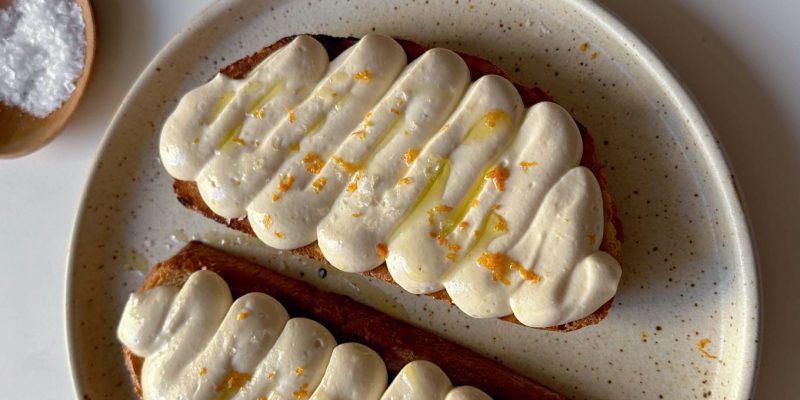Life and Love
Love and relationships: The social stigma of online dating
In the world of online dating, why are so many people ashamed to admit they met online?
by : Sarah Treleaven- Jul 3rd, 2013

I met my boyfriend while he was killing a chicken, and I’ve never been reluctant to repeat this story. In his defence, he was killing his own chicken, which he had lovingly raised for over a year, and it was for dinner, not some bizarre ritual. It’s a story that occasionally makes people squirm but for the most part has been determined a “meet cute.” So it amazes me that while my boyfriend and I happily parrot our story of connecting over a carcass, there are online daters out there who are anxious to keep their process a secret.
RELATIONSHIPS: The danger of being JUST FRIENDS
There are, in my peer group of men and women in their late 20s through to mid-40s, a number of people who date online or met their significant other online and don’t want the world to know. I have two very happily married friends who bristle if you mention that they met through a personal ad on Craigslist. An acquaintance briefly dated a man she met on OkCupid, and he insisted they tell friends that they met in a café. Another friend recently told me that she knows at least eight couples who won’t admit they met online. “They even try to lie to me,” she says, “and I was there at the very beginning.”
The statistics show that online dating has broken well into the mainstream. Plenty of Fish claims that three million Canadians were active on the site in 2012, and, according to the National Post, the online dating industry in North America has grown from $40 million in revenue in 2000 to over $1.5 billion. So why is anyone still reluctant to admit that they do it?
RELATIONSHIPS: How to write a LOVE LETTER
“Nora,” a Toronto-based friend who asked that I not use her real name, has been dating online for about four years and is still reluctant to talk about it. “I feel really exposed,” she says. “I value my privacy and professionalism, and I don’t like the idea that anyone I know could come across this profile of me trying to sell myself.”
While reasons for online-dating shame vary, there’s a consensus on at least one: People associate it with desperation. “Part of romantic love, which came along a couple of centuries ago, included the notion that our search for love was a measure of our own desirability in the world,” says Dan Slater, author of Love in the Time of Algorithms: What Technology Does to Meeting and Mating. “To admit that you needed help was tantamount to admitting that you couldn’t pull off your search yourself.”
“Dana,” an acquaintance in Toronto who also prefers not to disclose her real name, just can’t get comfortable with a love life on the Internet. “A friend of mine once blurted out to a table of friends about an online date I’d had, and I had to examine why I was angry with her for that,” she says. “I realized that the stigma still exists and it’s like ‘Why hasn’t someone chosen me by now? Why do I have to offer myself up in a flipping online catalogue?’”
Read more about the shame associated with online dating on the next page…

Dana says that she hates the idea of announcing that she’s “on the market.” “There’s still the whole fairy-tale bullshit of ‘fate brought us together’ that people buy into, and want to buy into,” she says. “Perhaps that’s part of the embarrassment thing, especially for women who prefer to be sought out rather than seek someone in such a pointed way.”
RELATIONSHIPS: One MAN’S ODE TO WOMEN
Shame about dating online isn’t limited to individuals still searching. Kansas City-based writer Molly Shapiro, author of Point, Click, Love, met her boyfriend online six years ago. They were happy about everything except how they met and avoided telling people the truth—at first. “I felt like people were going to make judgments about me,” admits Shapiro. “What’s wrong with him and what’s wrong with this match? But it doesn’t make sense. If we met drunk in a bar, I would have no reluctance telling people. One of my friends met her husband at Benny’s Burritos in New York City, and that’s considered a great story.”
Discussions of online dating are replete with references to “the real world,” and the term is used to differentiate what happens online. There is plenty of evidence of online shenanigans and tricksters, and recent examples, such as the Manti Te’o fake-girlfriend hoax, are littered across popular culture. And even though we know that a man sitting on the next bar stool can easily lie, we still believe that what happens in the digital world has less veracity than flesh-and-blood encounters— and that the relationships that arise online are of inferior quality.
Our perspectives on long-term relationships and marriage have gradually moved from the highly pragmatic to the highly romantic, from the idea of a “good match,” involving someone who’s employed, to the idea that “chemistry” is the key. And online dating has long been accused of lacking chemistry and romance. Instead of making eyes with a good-looking stranger across a crowded room, you’re suddenly wondering whether you want to forever spend your Saturdays indulging the woodworking hobby of a five-foot-10-inch man who has one son from a previous relationship and was raised Anglican.
RELATIONSHIPS: How to live HAPPILY EVER AFTER
It’s also possible that part of the reason online dating has a questionable reputation is that many people seem to find it unpleasant. Unlike meeting someone at work or in school, developing an online profile is exclusively dedicated to the pursuit of love, sex or companionship—and when it doesn’t pan out, it’s easy to get frustrated.
Is online dating becoming less taboo? Find out on the next page…

Los Angeles-based online-dating coach Julie Spira says that almost everyone comes to her grudgingly. “No one says that they’re super-excited about it,” she says. “They tell me that their
girlfriend met someone online and they figured they should try it and they hope they won’t have to spend more than a month doing it. We all have our egos, and we all want to believe that we’re attractive people and we can go out there and organically find love, whether it’s at college or a party.”
Some are embarrassed at the idea of dating being so clinical—sifting through hundreds of detailed, sterilized profiles as well as crafting their own. Dana says she’s flattered when a guy wants to pursue her in person—less so when the chase transpires online. “The whole thing feels stilted, and you can’t be intuitive at all until you meet,” she says. “I find the whole thing weird and unnatural.”
RELATIONSHIPS: Is DRUNK SEX the new normal?
That abundance of options is related to another online-dating stigma: that the embarrassment of riches encourages less monogamy and more one-night stands—a practice that is still subject to judgment. “If you perceive that your number of alternatives is higher, you’re less likely to commit,” says Slater. “We used to just have smooth and crunchy peanut butter, but now we have 40 types of peanut butter. If a particular peanut butter doesn’t satisfy all of your needs, you figure you can always try something else.” An online society rife with casual hookups can cast a shadow over daters looking for long-term love.
But others are turning the highly pragmatic method offered by access to so much information into a way to meet the perfect candidate. Amy Webb, author of Data, A Love Story, created her own scoring system and used it to find her now husband online after only two months of searching. “I wanted to be settled down and I was looking for efficiency,” says Webb. “In the past, I had fallen in love and there was a great whirlwind romance, but that stuff fades. I wanted to make sure that the most important stuff for me wasn’t compromised.”
Despite some lingering pockets of shame, it certainly appears that we’re turning a corner. “Society is moving past this embarrassment because online dating works,” says Slater. “When something works, particularly for a ‘life task’ as essential as finding a mate, you’re willing to get over yourself and give it a try.” According to Slater, a 2010 study found that one in five committed relationships originate online. And in 2011, eHarmony claimed that it is responsible for at least 100,000 marriages every year. More definitively, a new study published in Proceedings of the National Academy of Sciences found that more than one-third of U.S. couples who married between 2005 and 2012 met online—and that they were more satisfied with their relationship and slightly less likely to break up than those who met off-line.
RELATIONSHIPS: How to find the PERFECT MAN
Shapiro says she now feels that society is coming to accept the legitimacy of couples who meet online, just as we’ve come to accept the legitimacy of almost anything else conducted online. “I think it’s becoming not such a big deal,” she says. “It’s just going to be that you shop online, you get an advanced degree online and you date online. You just do. And it’s going to get to a point where it’s a non-issue.” Still, despite all the signs of acceptance, the stigma of online dating remains a deterrent for many. “I laugh about my online dating exploits with my friends, but, because of my own personal barriers, I haven’t been able to tell my family that I am dating via a website,” says “Sonia,” also not her real name, a Toronto university student. “Going online was like accepting that I was giving up on the magic of a real-life boy-meets-girl. On some level, it feels like I have failed at a basic part of the human experience—that the only way to create interest is through a quippy bio and official ‘single’ status online. I’m dating online because I feel like I have to, not because I want to. I don’t feel judged by others, yet I am not a proud member of the online-dating community. Part of me is still hoping for an old-fashioned ‘happily ever after’ chance encounter.”
Read more:
How to climb the social media ladder
Relationships: How men and women think of love
Friendship advice: The tricky art of unfriending etiquette
Relationships: How men and women think of love
Newsletter
Join our mailing list for the latest and biggest in fashion trends, beauty, culture and celebrity.
More from Life and Love
Read Next

Fashion
These Will Be 2025’s Biggest Wedding Dress Trends
Dropped waists, bridal bows and bubble hemlines for the 2025 brides.
by : Lauren Knowles- Apr 16th, 2024

Fashion
16 Mother's Day Gifts for Every Type of Mom
From the loveliest spring fragrances to sentimental gifts she'll never stop loving.
by : Melissa Fejtek- Apr 16th, 2024

Culture
This Maple Whipped Tofu Toast Is Unreal
Light, fluffy with a touch of zest, this maple syrup-infused toast is a slice of heaven.
by : Margaux Verdier- Apr 9th, 2024




